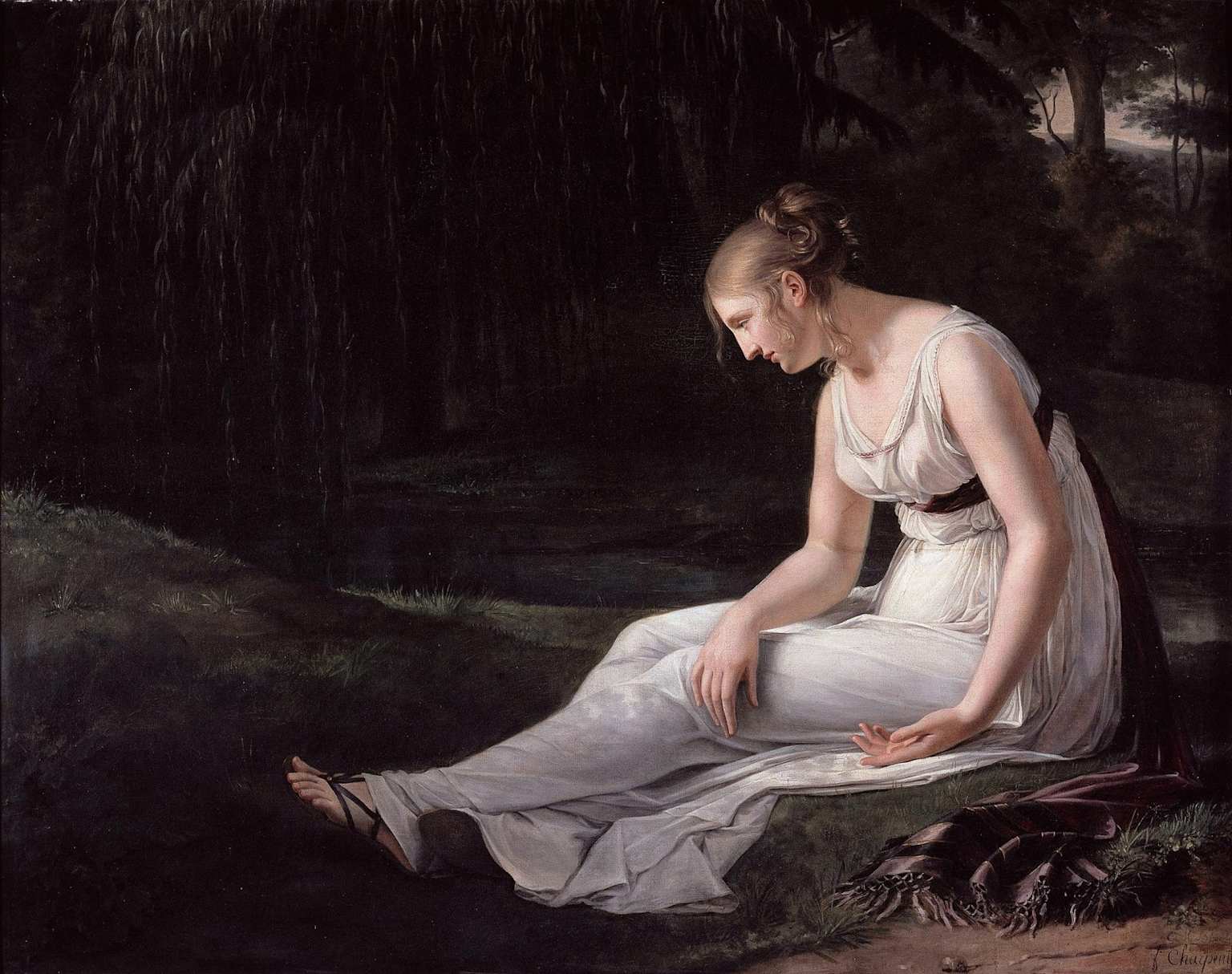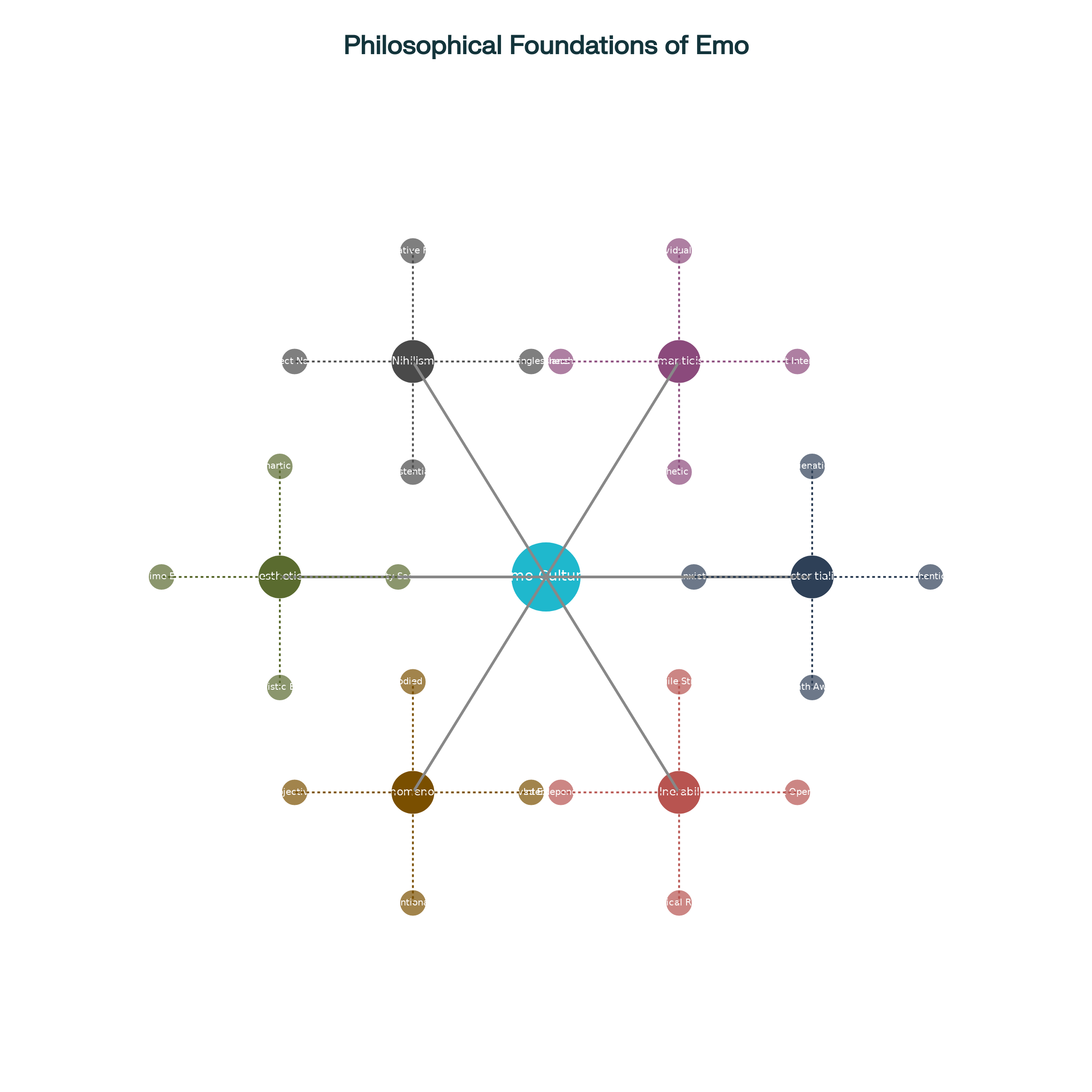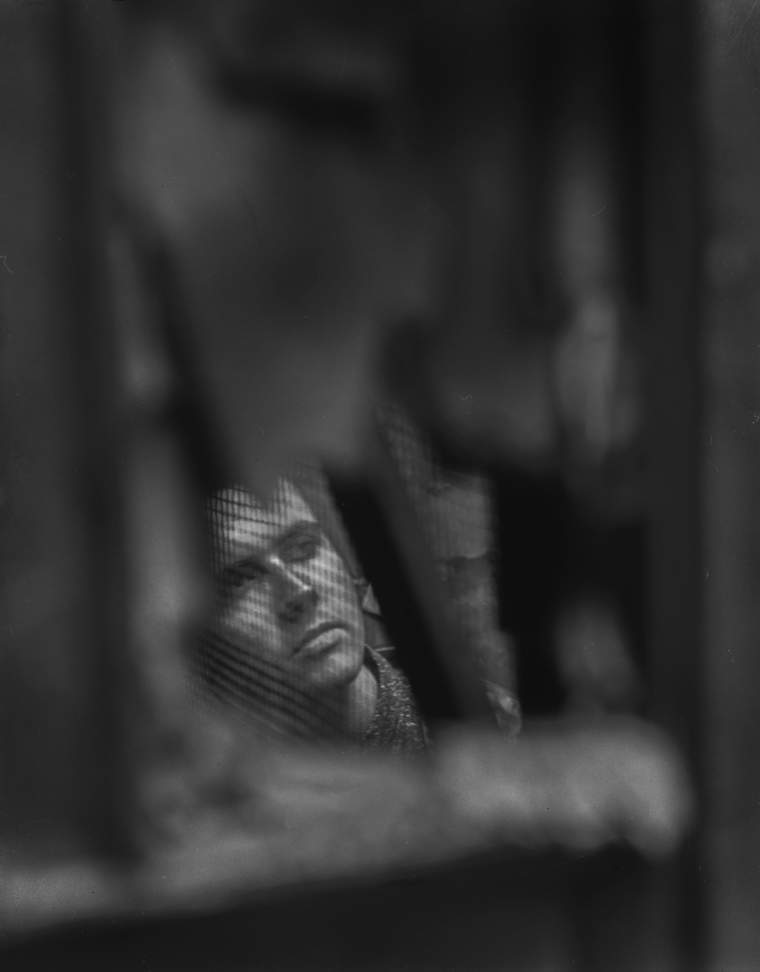
The Philosophy of Emo & Emo in Philosophy
Exploring the Existential Depths of Emotional Culture
An intellectual journey through the philosophical foundations of emo culture and its connections to major philosophical movements
Begin Exploration
Exploring the Existential Depths of Emotional Culture
An intellectual journey through the philosophical foundations of emo culture and its connections to major philosophical movements
Begin ExplorationUnderstanding the Dual Nature of Our Investigation
Examining the philosophical underpinnings that inform emo culture - from existentialist themes of authenticity and alienation to romantic notions of emotional intensity and individual expression.
Exploring how emo culture embodies and responds to major philosophical movements, creating a lived philosophy through music, fashion, and community formation.

Tracing the Philosophical Roots
The emphasis on authentic self-creation, anxiety, and alienation
Emotional intensity and the privileging of feeling over reason
Creative response to meaninglessness and value destruction
The Conceptual Heart of Emo Philosophy
Emo culture's emphasis on being true to oneself mirrors existentialist concepts of authentic living, drawing from Kierkegaard's call for passionate commitment and Sartre's radical freedom.
The emo embrace of emotional openness reflects philosophical arguments for vulnerability as fundamental to human ethics, connected to feminist philosophy and care ethics.
The emo appreciation of sadness connects to philosophical traditions of finding beauty in sorrow, from Aristotle's catharsis to Benjamin's melancholy as critical consciousness.
Emo scenes create community bonds through shared emotional experiences, relating to Levinas's ethics of the face and recognition theory in Hegel and Taylor.
How Emo Engages with Modern Philosophy
Emo culture demonstrates how aesthetic experiences can be vehicles for deep emotional and philosophical engagement, drawing from thinkers like Kant, Schopenhauer, and Benjamin.

The embodied experience of emo culture reflects phenomenological insights about lived experience, particularly the work of Merleau-Ponty and Max Scheler.

Deep Dive into Emo's Philosophical Significance
Emo culture can be understood as a collective existential response to postmodern alienation. The emphasis on authentic self-expression, the anxiety of choice, and the creation of meaning through artistic practice all echo core existentialist themes. The DIY ethos represents what Sartre might call "radical freedom" - the recognition that we are "condemned to be free" and must create our own values and meaning.
The emo embrace of emotional openness challenges traditional notions of strength and masculinity, proposing vulnerability as a form of ethical courage. This connects to feminist philosophical insights about care ethics and the importance of emotional labor in creating authentic human connections.
Drawing from Walter Benjamin's work on melancholy, emo's aesthetic of sadness can be read as a form of critical consciousness - a way of resisting the enforced optimism of consumer capitalism and maintaining awareness of loss, injustice, and the tragic dimensions of human existence.
Deepen Your Understanding